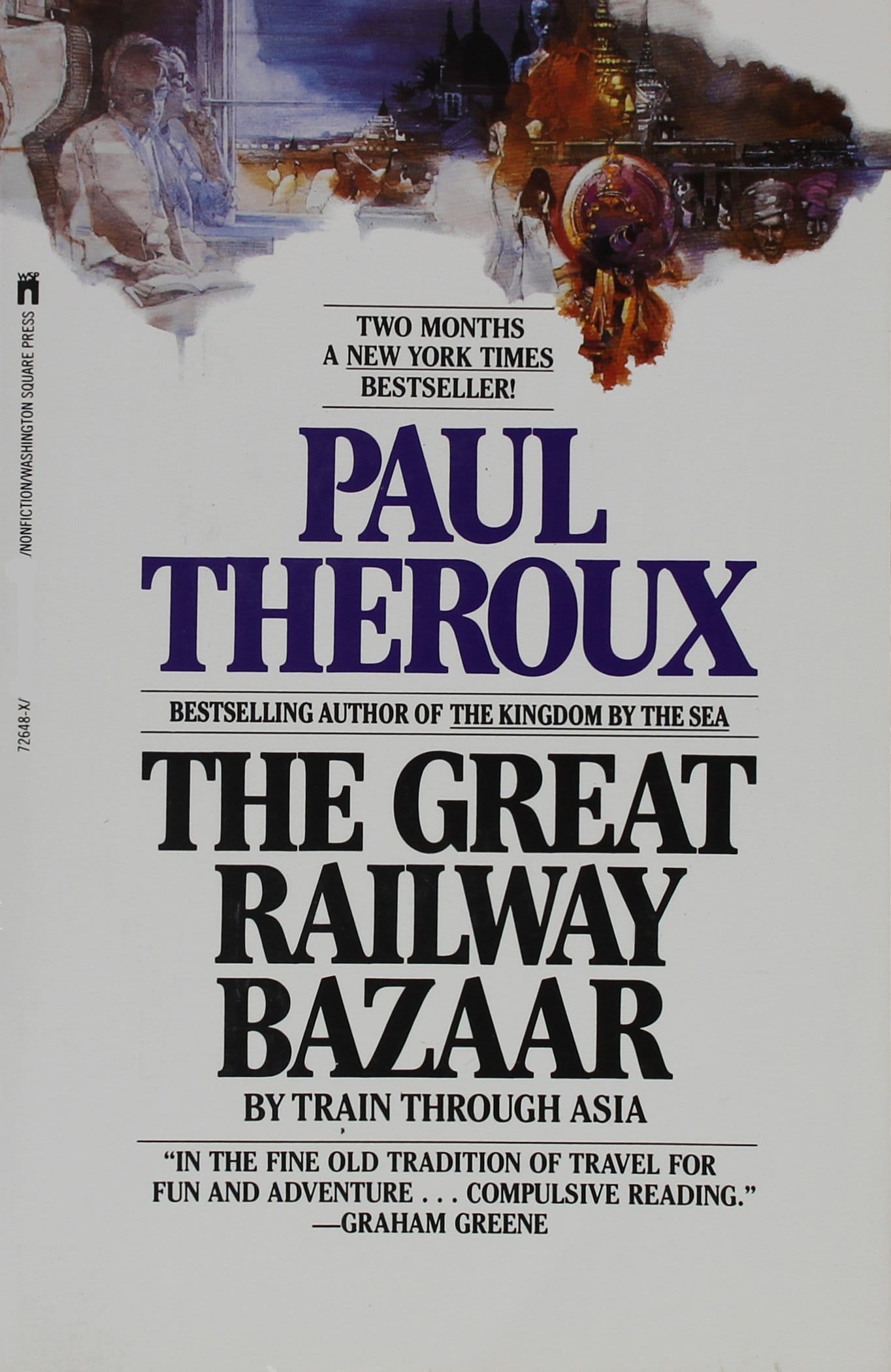week 38 / 2025: player of games
I’m waxing philosophical this week, as I consider the potential utility of the “dark forest” theory of the internet to foresight. So please exercise your (potentially illusory) free will and click on through to follow along...

“The girl was never there / it's always the same / I'm running towards nothing / again and again and again and again...”
A while back, I wrote about George Box’s aphorism, namely “all models are wrong, but some models are useful”. This week, I thought I might share my thinking-through of a new-to-me theory—the process of deciding, in other words, whether this model is useful to my work.
The theory in question is Bogna Konior’s “dark forest” theory of the internet, which I’ve been reading around as part of PROJECT FLATPACK. Its utility in the context of that project is a separate question; my concern here is whether I want to assimilate it into my own working suite of models.
I’ll start with a caveat: this is a shallow first reading of Konior’s theory as found in the original essay from five years ago, supplemented by a few interviews with her on the topic; there’s a book-length re-visit of the theory coming out in a few months, and that may have changed and/or advanced it considerably from the original thesis. In other words, if I’m mangling or misrepresenting Konior’s thought, well—that’s very much on me.
So: the “dark forest” theory posits that human communication is 1) a compulsion, and 2) a source of conflict; communication is therefore an indicator not of intelligence, but something closer to stupidity, because it exposes our existence to other intelligences, with whom conflict then becomes inevitable. The result is
… a digital world in which deception is safety, silence is strategy, and new forms of intelligence emerge through obfuscation [...] intelligence itself is mutating under pressure, learning to hide, mislead, and manipulate.
The core point here, as I understand it, is that the internet is a sewer of deceit because that’s the optimal evolutionary strategy for intelligences inhabiting this particular environment.
(There’s also a more cosmic-scale side to this theory, drawing hard on Cixin Liu’s portentous and all-but-unreadable science fiction trilogy, which I’m mostly setting aside for the purposes of this argument. We can argue about stealth-moded alien civilisations and/or paranoid sentient algorithms haunting the internet some other time.)
I actually have a bunch of objections, including a sense that evolution is not a suitable metaphor for the dynamics under study, or that it is being stretched far further than it will bear; it’s a little like mistaking Conway’s Game of Life for a real ecosystem. But a very particular something about this hypothesis bothered me from the get-go, nagging harder at me the more time I spent with it—and I think it actually underlies the evolutionary objection.
Put it this way: if communication is such a reliable source of conflict, and if the internet is an environment where conflict-arising-from-communication has become the core dynamic, why don’t people just, y’know, use it less, or stop using it entirely? (The five years since Konior first published her theory have seen some amount of such withdrawal, though quite how significant it will prove over the long term remains to be seen.)
I’m assuming Konior’s counter to that would be to riff on what she describes as the fundamental ontological unfreedom of humans: we notice the unfreedom of being online very intensely, she says, so offline feels less unfree, but free will is probably an illusion because, uh, neuroscience? And so we return to the intensifying nightmare, because we can’t defeat the compulsion to COMMUNICATE MOAR, even if the experience is unpleasant, etc etc.
Reading Konior’s mention of neuroscience as indicative of that “ontological unfreedom” was the coin-drop moment for me: at root, this is a behaviourist/determinist philosophy, one that denies free will. Like B F Skinner’s rats, we’re just dopamine algorithms wrapped in meat, swiping and scrolling, powerless to resist the elaborate incentive-machines we’ve built around ourselves.
It’s worth noting that this is a prevalent perspective that can be found on both sides of the political spectrum; I should also note that I probably held a weak version of this position myself for quite a long time. But as I look at it now, all I see is a grim fatalism—an anthro-pessimism, even. The root assumption is that we can’t change ourselves by choice. As such, it’s not really a useful model for foresight, which is predicated on the possibility of adaptation to new circumstances.
(It’s still an interesting lens to think with, I guess? It has a limited explanatory power with regard to the nature of the online world, and I can see how it might be particularly valuable for thinking about various “AI” questions—but that entirely depends on your buying the argument that algorithms are, or could become, intelligences in their own right. I do not buy that argument.)
To be fair, Konior is quite clear in her disavowal of normative philosophies: to reverse Marx’s famous line, the point for Konior is not to change the world, but to describe it. As a thinker raised in the ruins of previous revolutionary philosophies (Konior is of Polish heritage), her rejection of idealism is understandable; I don’t consider myself an idealist in that sense, either.
But at some point I decided to reject fatalism as well as idealism—a decision which, I admit, is based as much in feeling as in reason. The “dark forest” theory robs us of agency, and—if you ask me—it has that in common with revolutionary theories that see, for example, the proletariat as the means by which the economic base will undergo a dialectical development. In both cases, we are ultimately subservient to the structures in which we are embedded.
I decline to accept that designation. I choose to believe that, while we are undoubtedly assailed by structural forces of considerable power and influence, we still have the capacity to change. I choose to believe that there is a path—that there are many paths, even—that we might walk between the Scylla and Charybdis of idealism and fatalism.
Perhaps free will really is an illusion, as some neuroscientists would have us believe. Perhaps I am indulging a naivete which is merely an artefact of amoral evolutionary pressures upon an entirely reactive suite of biological algo-functions. Perhaps the universe is essentially Hobbesean, populated only by paranoid intelligences/civilisations fearful of revealing themselves to one another, developing ever more sophisticated abilities to deceive and disguise themselves.
That sounds to me like the defeatist try-for-stalemate end-game of an exhausted scientism, rather than the opening move of a new philosophical paradigm. It sounds to me like a self-fulfilling prophecy.
I choose instead my illusory choice.
reading
The Great Railway Bazaar is not the first of Paul Theroux’s books I’ve read; it’s not even the first of his railway-travel books I’ve read. However, it’s been some time since the last one—namely The Old Patagonian Express, which I read over two decades ago, either ahead of or after my travels in Mexico in 2003—and I’m a much more subtle reader now than I was then.

That means, for starters, that I can see what it is that appeals in Theroux’s writing. Quite simply, he could turn a fine phrase, bring a character or scene to life with the deft deployment of a few telling details. I’d be hard pressed, I think, to explain it in strictly mechanical terms, through the dissection of sentences and so forth—but then I’m not sure anyone can really do that, even if they think they can. This is the sense in which writing is magic, and some writers are just better magicians than others: their sentences simply do more, somehow, and while one can learn to detect that magic on the page, it is detected by feel rather than by cold analysis. Theroux has (or had?) that magic, and it flashes and sparks all the way through this travelogue.
The other realisation is less pleasurable, in that it’s much easier now to see that Theroux, while far from completely devoid of human sympathies, is a deeply misanthropic character. I can’t escape the possibility that this reading has been suggested by my having encountered various accounts of the man’s actual life, not least from his family; furthermore, I’d be lying if I didn’t admit that some part of the pleasure of Old Patagonian wasn’t rooted in the scathing and superior sense of its narrative subjectivity. But with Bazaar, I have been finding it very hard to square the back-cover blurb about “travel for fun and adventure” with the experiences described within, which seem mostly to involve Theroux putting himself in unpleasant circumstances that will allow him to enumerate the failings of the country in which they occur, and of the people who will still be stuck with them once he’s moved on.
In recent years, I have taken to a particular trick of the mind when reading, namely to reverse the reality valence: in other words, to try to read fiction as is it were non-fiction, and vice versa. It’s particularly revealing in a case like this, wherein Bazaar becomes an unreliably-narrated first-person novel about a deeply dissatisfied man who can travel across entire continents without realising that the countless dissatisfactions he encounters almost everywhere are actually just the one unrecognised dissatisfaction that sits behind his own ribs. The travelogue thus becomes a tragedy, and Theroux a figure for a certain temporally and geographically specific way of looking at the world; it doesn’t make him any more likeable, but it packs a pathos that a straighter reading simply cannot reveal.
a clipping
This week’s clipping is included less for its literary qualities than for its factual content. It’s not news to me that there are chunks of infrastructural hardware that still rely on hideously obsolete versions of Windows—I clipped it because I wanted a fresh reference for it—but perhaps it’s news to you?
For four years, psychiatrist Eric Zabriskie would show up to his job at the US Department of Veterans Affairs (VA) and start the day waiting for a computer to boot up. "I had to get to the clinic early because sometimes it would take 15 minutes just to log into the computer," Zabriskie says. "Once you're in you try to never log out. I'd hold on for dear life. It was excruciatingly slow."
You could add to this the stories of musicians and producers who maintain air-gapped studios in order that they can continue to use the one particular version of a given DAW or sequencer that they deem to be best, or that is compatible with some equally out-dated but special bit of hardware… and then there’s the whole thing about banks (and states!) and COBOL, and the cranky old machines that are still part of various nuclear facilities around the world, whether military or civilian.
So—still feeling confident about that “AI-first” future they keep promising, hmm?
ticked off
- Eight and a half hours of admyn. (Including assorted small non-admyn tasks too small to merit a project name or their own category in the ledger. Bits and bobs, you know?)
- Eight hours on PROJECT PORTON. (All deliverables have been filed with the client ahead of the original deadlines—which, for a project that kicked off back in January, with what was judged an extremely tight timeline, is a pretty good feeling. There will be feedback and tweaks to be made, of course, but the thing is basically done, at least as far as my own contributions are concerned.)
- Seven hours on PROJECT FLATPACK. (Research, research, some meetings, research.)
- Four hours of off-project research. (One of the pleasures of this job is that there are times when it is completely legitimate to just allocate four hours of your week to learning about something in particular, not because you currently have a specific use for that knowledge, but because you’re very sure that you will have a use for it in the foreseeable future.)
- Ten hours of undirected writing and reading, as always.
kinmaking
An hour with the high priestess of narratology, Genevieve Liveley, is always the best of times. The secret, it seems, is to catch her in that vanishingly small gap of time between the new academic year beginning on paper, and it beginning in earnest...
I also had lunch with Petra Jenning of architecture firm FOJAB, which included some discussion of the knowledge-action gap as applied to foresight: you can lead a horse to water—and sometimes the horse has commissioned you to do exactly that!—but you really can’t make them drink. Or can you? Is that even your responsibility?
Right, that's your lot; I've got a film shoot to get to. I hope all is well with you, wherever you may be.
This has been the Worldbuilding Agency weeknotes for Week 38 of 2025. Thanks for reading! If you've enjoyed them, it's free to subscribe. If you are already subscribed, please send to a friend who you think might also like it!





Comments ()